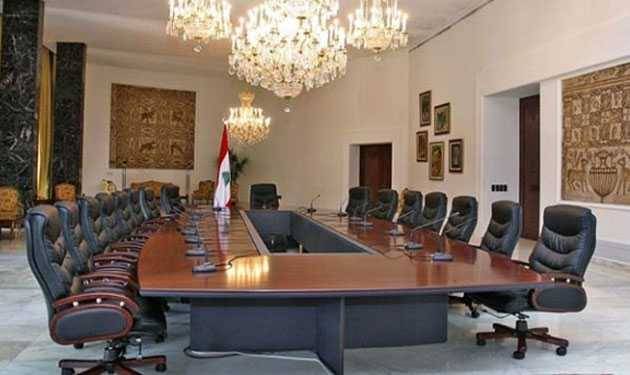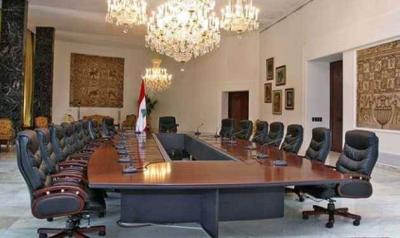The French president's special envoy to Lebanon, former Foreign Minister Jean-Yves Le Drian, confirmed that parliamentary dialogue remains the essential path to break the deadlock surrounding the presidential election and is the only way to restore order to constitutional institutions. He noted that those who propose alternatives will later realize that dialogue is the pragmatic solution necessary to set Lebanon on the path to recovery, as communicated to him by the deputies he met.
Le Drian emphasized that he is the one who proposed the dialogue, aligning with Speaker Nabih Berri's call for it, which would be followed by consecutive parliamentary sessions to elect a president. He revealed that Berri committed to keeping the election sessions open and will do everything in his power to ensure that the necessary quorum is maintained until the president is elected, and that he would not allow any disruption of the quorum.
Le Drian stated that there is a need to approach the call for dialogue realistically, responding to opposition deputies, including change deputies, who argued that prioritizing dialogue over the presidential election constitutes a constitutional violation. He supported the calls from several deputies to shorten the dialogue period set by Berri, so that it could be followed by consecutive sessions for electing a president, especially since he believed that dialogue would not lead to a reconfiguration of deputies' positions.
He stressed that the Quintet Committee, led by Saudi Arabia, unconditionally supports the call for dialogue among the Lebanese. Describing the meeting in Paris between Saudi Cabinet Advisor Nizar Alalwah and Saudi Ambassador to Lebanon Walid Bukhari, alongside French presidential advisor Patrick Durel, with his personal participation, he said it was very positive.
Le Drian considered the Saudi ambassador’s invitation to Sunni deputies for a meeting at his residence in Yerze, attended by himself and Grand Mufti of Lebanon Sheikh Abdul Latif Derian, as part of Saudi Arabia's reaffirmation of the importance of dialogue as a precursor to the presidential election. According to him, the Sunni deputies will hear from Ambassador Bukhari that his call for dialogue is supported by the member states of the Quintet Committee, including Saudi Arabia, the United States, France, Egypt, and Qatar.
While Le Drian avoided discussing specific presidential candidates, leaving the decision to the deputies, he assured those he met that dialogue would not hinder the election of a president. Thus, he suggested that statements from some deputies, including change deputies, claiming that Berri was using dialogue as an excuse to delay the presidential election were unfounded. He hinted to the change deputies that there are names of candidates who might be out of the race, but the final decision belongs to the deputies.
Le Drian urged the deputies to act responsibly regarding the dialogue, which should necessarily lead to the election of a president, emphasizing that Lebanon can no longer afford to be stuck in a vicious cycle. He pointed out that the election of a president is urgent and stated, "Time will not be in favor of your country, which is suffering from a buildup of crises, and you must return it to the international agenda before it is too late."
The opposition's reaction, along with some change and independent deputies, to Le Drian's insistence on dialogue as a roadmap for Lebanon's recovery, which will not materialize unless the film of delaying the presidential election stops, remains unclear at this time. According to "Asharq Al-Awsat" from parliamentary sources, deputies who previously registered their objection to Le Drian's message, prioritizing the election of a president, will evaluate their meetings with the French envoy in preparation for a position regarding his dialogue invitation.
The sources revealed that Le Drian's meeting with former Progressive Socialist Party leader Walid Jumblatt, attended by his son Taymour Jumblatt, the head of the Democratic Gathering, and MP Wael Abou Faour, although ending in consensus on the importance of dialogue as a precursor to electing a president, saw Jumblatt reiterate his position that a president capable of uniting the Lebanese should be elected, one who does not belong to a specific political team that could pose a challenge to others. The characteristics Jumblatt defined for the future president apply only to a consensual and non-provocative personality.
In this context, "Asharq Al-Awsat" learned from the same sources that deputies Boula Yacoubian, Najat Saliba Aoun, Ibrahim Mneimneh, and Yassin Yassin met with Le Drian to discuss the dialogue invitation and its feasibility. The parliamentary sources mentioned that the meeting was characterized by utter frankness, and the four deputies, along with their colleague Melhem Khalaf, would conduct outreach to their fellow deputies, whether they belong to the "Forces of Change" or parliamentary blocs and independents, to formulate a stance on the dialogue invitation. They indicated that they lean towards joining the dialogue participants, but nothing is definitive as they await some clarifications regarding the general framework of the dialogue, including the possibility of shortening the timeline set by Berri, as it would neither advance nor delay the situation. What has been decided regarding the deputies' options has already been set, thus there is no need for dialogue to continue for a week followed by consecutive sessions to elect a president.




